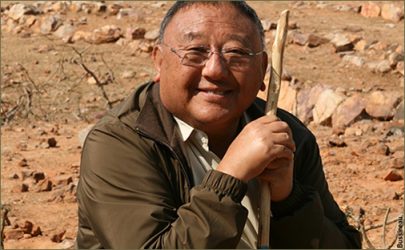(Full transcript available for subscribers.)
Did you know that suffering is optional? In this 8-part video series The Four Noble Truths, Tibetan master Gelek Rimpoche explains why this is true, how to recognize the causes of suffering, and how to make choices that alleviate it.
Gelek Rimpoche is one of the last great living Tibetan Buddhist masters to be fully educated in old Tibet. He is known for his knowledge of Tibetan Buddhism, culture and history. Since the late 1980s, he has given thousands of lectures and presentations to Westerners.
Born in Lhasa, Tibet, in 1939, Kyabje Gelek Rimpoche was recognized as an incarnate lama at the age of four. Carefully tutored from an early age by some of Tibet’s greatest living masters, Rimpoche was among the last generation of lamas educated in Drepung Monastery before the Communist Chinese invasion of Tibet. Gelek Rimpoche was forced to flee to India in 1959. While there, he edited and printed over 170 volumes of rare Tibetan manuscripts that would have otherwise been lost to humanity.
Rimpoche was also director of Tibet House in Delhi, India and a radio host at All India Radio. He conducted over 1,000 interviews in compiling an oral history of the fall of Tibet to the Communist Chinese. In the late 1970’s Rimpoche was directed to teach Western students by his teachers, the Senior and Junior Masters to His Holiness the Dalai Lama. Since that time he has taught Buddhist practitioners around the world.
The Buddhist master is particularly distinguished for his thorough familiarity with modern culture, and special effectiveness as a teacher of Western practitioners of Tibetan Buddhism. Recognizing the unique opportunity for the interface of spiritual and material concerns in today’s world, Rimpoche has also opened a dialogue with science, psychology, medicine, metaphysics, politics, and the arts.
In 1988, Rimpoche founded Jewel Heart, a Tibetan Buddhist Center. His Collected Works now include over 35 book style transcripts of his teachings, with 10 more in various stages of completion, numerous articles as well as the national bestseller Good Life, Good Death (Riverhead Books 2001) and The Tara Box: Rituals for Protection and Healing from the Female Buddha (New World Library 2004).
